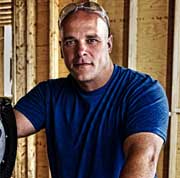Are you ready to become a homeowner but don’t know where to start when it comes to getting approved for a mortgage loan? The home-buying process can be confusing, especially if you are new to homeownership. Fortunately, there are several easy steps that you can take to make your mortgage application stand out from the competition and get approved quickly. In this article, we will provide some helpful tips that will help guide you through the process of obtaining a mortgage with ease. So if you’re looking for advice on how to maximize your chances of having your mortgage application accepted, keep reading!
Check Different Loan Options
There are numerous types of mortgage loans available, each with its features and specifications. Conventional loans, FHA loans, VA loans, low doc loans, and USDA loans are among the most common types. Conventional loans, typically offered by private lenders, often require a higher credit score but can offer competitive interest rates. FHA loans are government-backed and typically require a lower credit score. Meanwhile, VA loans are designed for military members, low doc loans require less paperwork than traditional mortgages, and USDA loans can be used to purchase rural property.
Know Your Credit Score and Improve It
Your credit score is a crucial factor in your mortgage approval. It displays your creditworthiness and loan repayment capacity. In general, loans with better conditions and lower interest rates have credit ratings. If your credit score isn’t the best, don’t stress. There are several ways to improve it before applying for a mortgage. Start by getting a copy of your credit report and checking it for inaccuracies.
Dispute any errors you find with the credit bureaus. Next, work on lowering your credit utilization, which is the amount of credit you’re using compared to your limit. Try to pay down your balances and avoid making large purchases. Furthermore, ensure you make all your current payments on time, as late payments can significantly hurt your score. Lastly, avoid applying for new credit in the run-up to your mortgage application; these can result in hard inquiries on your report, which can temporarily lower your score.
Determine Your Budget and Financial Readiness
Determining your budget is an integral step in the home-buying process. Before starting your house search or applying for a mortgage, it’s vital to understand how much you can realistically afford. A rule of thumb is to aim for a home that costs about two and a half times your gross annual salary.
To understand your financial readiness, consider your existing debts, monthly expenses, savings, and income. Remember, when you own a home, you’ll also need to account for additional costs like property taxes, homeowners insurance, and maintenance expenses.
Use online mortgage calculators to estimate what your monthly mortgage payments could be, based on different home prices, down payment amounts, and interest rates. Also, keep in mind that lenders typically prefer that your total monthly housing payment (including taxes and insurance) doesn’t exceed 28% of your gross monthly income and that your total monthly debt payments (including your mortgage, credit cards, car payments, student loans, etc.) don’t exceed 36%.
Save for a Down Payment and Closing Costs
A significant part of your home-buying journey involves saving for a down payment and closing costs. The down payment, typically ranging from 3.5% to 20% of the home’s purchase price, significantly influences your mortgage interest rate and monthly payments. A higher down payment generally results in more favorable loan terms and reduces the amount you need to borrow, leading to lower monthly payments.
In addition to your down payment, you should also plan for closing costs. These are fees and expenses paid at the closing of your mortgage transaction. They may include loan origination fees, title insurance, appraisal fees, and more. On average, closing costs range from 2% to 5% of your home’s purchase price.
To save for these expenses, consider setting up a separate savings account specifically for your home-buying journey. Automate contributions to this account each month, and look for ways to increase your income or reduce your current expenses. Every bit helps, and over time, these savings will add up and bring you closer to your goal of homeownership.

Gather Essential Documents in Advance
To expedite your mortgage application process, it’s a good idea to gather all the necessary documents in advance. These typically include proof of income, such as recent pay stubs and W-2 forms; proof of assets, such as bank and investment account statements; employment verification; and personal identification like your driver’s license or passport. You may also need to provide documentation of debts, such as student loans, auto loans, or credit card debt.
For self-employed individuals, additional documentation may be required, including two years of tax returns and profit and loss statements. If you receive income from rental properties, alimony, or other sources, you’ll need documents verifying these as well.
Organizing these documents ahead of time can streamline the mortgage approval process and potentially speed up your path to homeownership. Remember, each lender’s requirements may vary, so it’s essential to confirm exactly what you’ll need with your chosen lender.
In conclusion, taking the time to review different loan options, understand your credit score and financial readiness, save for closing costs, and organize essential documents in advance will help maximize your chances of having your mortgage application accepted. With proper preparation and these helpful tips in mind, you’re one step closer to achieving homeownership!











